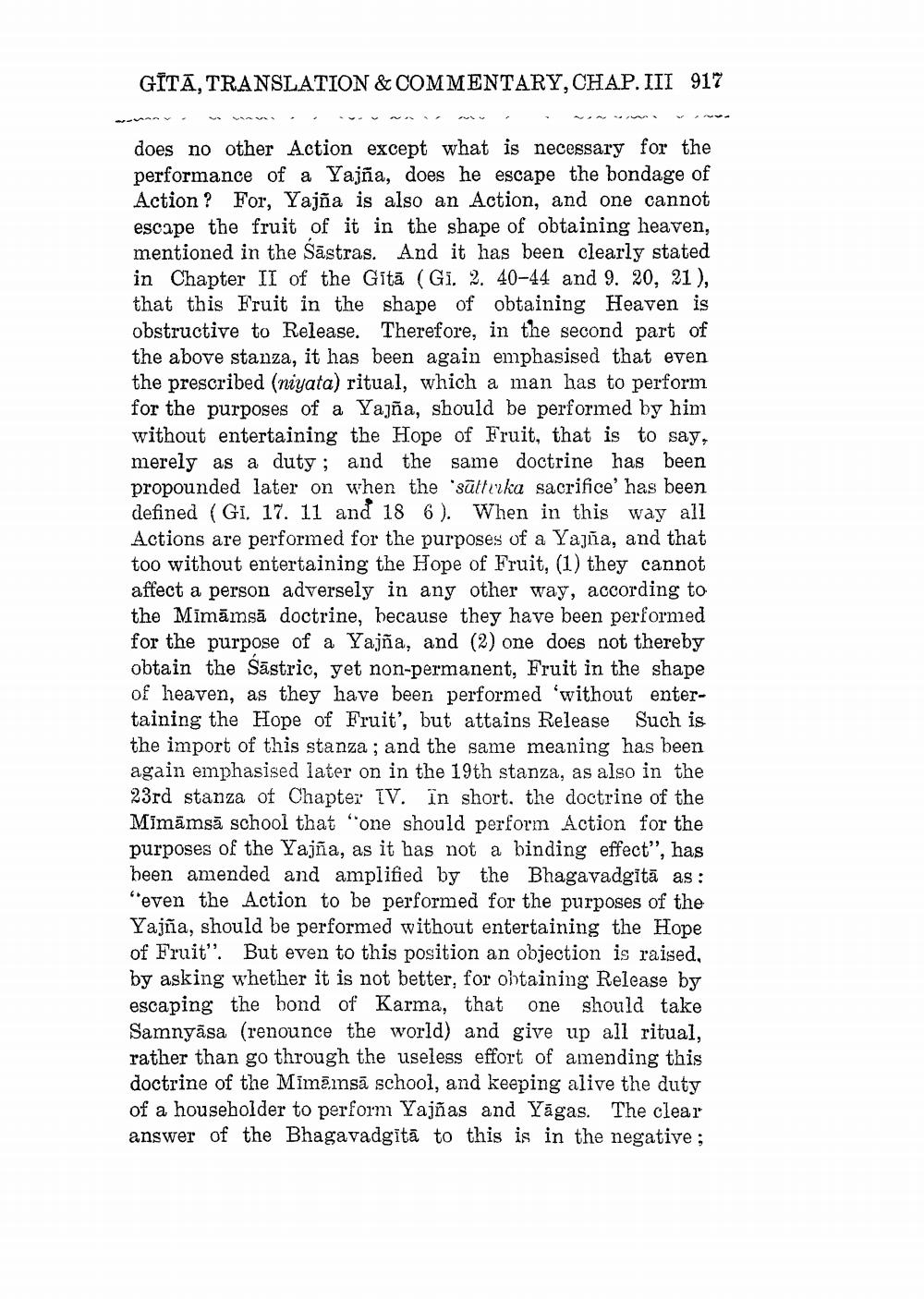________________
GITĀ, TRANSLATION & COMMENTARY, CHAP. III 917
does no other Action except what is necessary for the performance of a Yajña, does he escape the bondage of Action? For, Yajña is also an Action, and one cannot escape the fruit of it in the shape of obtaining heaven, mentioned in the Sāstras. And it has been clearly stated in Chapter II of the Gītā (Gi. 2. 40-44 and 9. 20, 21 ), that this Fruit in the shape of obtaining Heaven is obstructive to Release. Therefore, in the second part of the above stanza, it has been again emphasised that even the prescribed (niyata) ritual, which a man has to perform for the purposes of a Yajña, should be performed by him without entertaining the Hope of Fruit, that is to say, merely as a duty; and the same doctrine has been propounded later on when the 'süttırka sacrifice' has been defined (Gi. 17. 11 and 18 6). When in this way all Actions are performed for the purposes of a Yajna, and that too without entertaining the Hope of Fruit, (1) they cannot affect a person adversely in any other way, according to the Mīmāmsā doctrine, because they have been performed for the purpose of a Yajna, and (2) one does not thereby obtain the Sāstric, yet non-permanent, Fruit in the shape of heaven, as they have been performed 'without entertaining the Hope of Fruit', but attains Release Such is the import of this stanza; and the same meaning has been again emphasised later on in the 19th stanza, as also in the 23rd stanza of Chapter IV. In short, the doctrine of the Mīmāmsā school that “one should perform Action for the purposes of the Yajña, as it has not a binding effect”, has been amended and amplified by the Bhagavadgitā as: "even the Action to be performed for the purposes of the Yajña, should be performed without entertaining the Hope of Fruit". But even to this position an objection is raised, by asking whether it is not better, for obtaining Release by escaping the bond of Karma, that one should take Samnyāsa (renounce the world) and give up all ritual, rather than go through the useless effort of amending this doctrine of the Mīmāınsā school, and keeping alive the duty of a householder to perform Yajñas and Yāgas. The clear answer of the Bhagavadgitā to this is in the negative;




